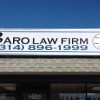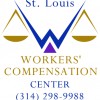
For over 30 years Kimber H. Baro has been dedicated to helping people with financial problems and emergencies get the relief they need. She has represented thousands of individuals and married couples in chapter 7 and chapter 13 bankruptcy cases. She is a well respected lawyer in the field, friendly and knowledgeable, and easy to get in contact with.
Helping people file bankruptcy and eliminate their debts - and save their homes, their cars, and their livelihoods - is her passion! Kimber received her law degree (Juris Doctor), cum laude, from St. Louis University School of Law in 1984, and her undergraduate degree with honors from Valparaiso University in 1981. Kimber has been practicing bankruptcy law since 1988.
From 2000 to 2014 Kimber was a partner in a law firm that specialized in bankruptcy law. In 2014 she formed her own law firm, Baro Law Firm. She is a frequent speaker and lecturer at bankruptcy education seminars for the Missouri Bar and the United States Bankruptcy Court.
She is a member of the Missouri Bar, the National Association of Consumer Bankruptcy Attorneys (NACBA), and is licensed to practice law in the United States District Court for the Eastern District of Missouri, the United States Court of Appeals for the Eighth Circuit, and the United States Supreme Court.
Helping people file bankruptcy and eliminate their debts - and save their homes, their cars, and their livelihoods - is her passion! Kimber received her law degree (Juris Doctor), cum laude, from St. Louis University School of Law in 1984, and her undergraduate degree with honors from Valparaiso University in 1981. Kimber has been practicing bankruptcy law since 1988.
From 2000 to 2014 Kimber was a partner in a law firm that specialized in bankruptcy law. In 2014 she formed her own law firm, Baro Law Firm. She is a frequent speaker and lecturer at bankruptcy education seminars for the Missouri Bar and the United States Bankruptcy Court.
She is a member of the Missouri Bar, the National Association of Consumer Bankruptcy Attorneys (NACBA), and is licensed to practice law in the United States District Court for the Eastern District of Missouri, the United States Court of Appeals for the Eighth Circuit, and the United States Supreme Court.
Services
We are bankruptcy attorneys!
Meaning bankruptcy is our primary area of practice.
We pride ourselves on our knowledge of bankruptcy law and we do our job well.
Bankruptcy is serious step that has real consequences.
Bankruptcy is also a relatively complicated area of law.
It is important that you choose to work with attorneys who have real experience practicing bankruptcy law.
We file hundreds of chapter 7 and chapter 13 bankruptcies each year.
Because we are a small, specialized law firm, we are able to offer lower prices than most St. Louis area attorneys without sacrificing quality of service.
Meaning bankruptcy is our primary area of practice.
We pride ourselves on our knowledge of bankruptcy law and we do our job well.
Bankruptcy is serious step that has real consequences.
Bankruptcy is also a relatively complicated area of law.
It is important that you choose to work with attorneys who have real experience practicing bankruptcy law.
We file hundreds of chapter 7 and chapter 13 bankruptcies each year.
Because we are a small, specialized law firm, we are able to offer lower prices than most St. Louis area attorneys without sacrificing quality of service.
Chapter 7 bankruptcy is the type of bankruptcy most people think of when they think of bankruptcy.
Chapter 7 is the quickest and easiest type of bankruptcy where you simply file and discharge the debts that you can discharge, and are left with any debts that could not be discharged.
You don't pay any debts back, you walk away from the debts you can walk away from and you are done.
Debts that are not discharged remain in place and can be collected once the bankruptcy is completed.
A DISCHARGE is a court order that says that the debts you had when you filed bankruptcy are no longer collectable.
Chapter 7 is the quickest and easiest type of bankruptcy where you simply file and discharge the debts that you can discharge, and are left with any debts that could not be discharged.
You don't pay any debts back, you walk away from the debts you can walk away from and you are done.
Debts that are not discharged remain in place and can be collected once the bankruptcy is completed.
A DISCHARGE is a court order that says that the debts you had when you filed bankruptcy are no longer collectable.
A chapter 13 entails a monthly payment to the court, for 3 to 5 years, to pay back certain debts, not necessarily all of your debts.
Chapter 13 is a long, serious commitment.
One downside with a chapter 13 is the higher attorney fees and court costs over time.
You will also face limitations getting credit and financing while in a chapter 13.
Many file chapter 13 because it is their only bankruptcy option.
Though for many people it actually makes more sense financially to file a chapter 13 instead of a chapter 7, due to the benefits only available in a chapter 13 - such as reduced interest rates, loan balance reductions (cram downs), and discharge of certain debts that cannot be discharged in a chapter 7.
Chapter 13 is a long, serious commitment.
One downside with a chapter 13 is the higher attorney fees and court costs over time.
You will also face limitations getting credit and financing while in a chapter 13.
Many file chapter 13 because it is their only bankruptcy option.
Though for many people it actually makes more sense financially to file a chapter 13 instead of a chapter 7, due to the benefits only available in a chapter 13 - such as reduced interest rates, loan balance reductions (cram downs), and discharge of certain debts that cannot be discharged in a chapter 7.
In chapter 7, although the amount attorneys fees will vary from office to office, court fees are always the same.
Also, court fees and attorney's fees are always paid up front to the attorney prior to filing.
Attorneys are required to take these payments up front because they are prohibited by law from collecting payments from you after you file.
When we file your case we pay the filing fee online from our firm's account.
This is the way the fees work with all lawyers who file chapter 7.
The two questions to ask are 1.
Also, court fees and attorney's fees are always paid up front to the attorney prior to filing.
Attorneys are required to take these payments up front because they are prohibited by law from collecting payments from you after you file.
When we file your case we pay the filing fee online from our firm's account.
This is the way the fees work with all lawyers who file chapter 7.
The two questions to ask are 1.
Reviews

Be the first to review Baro Law Firm.
Write a Review